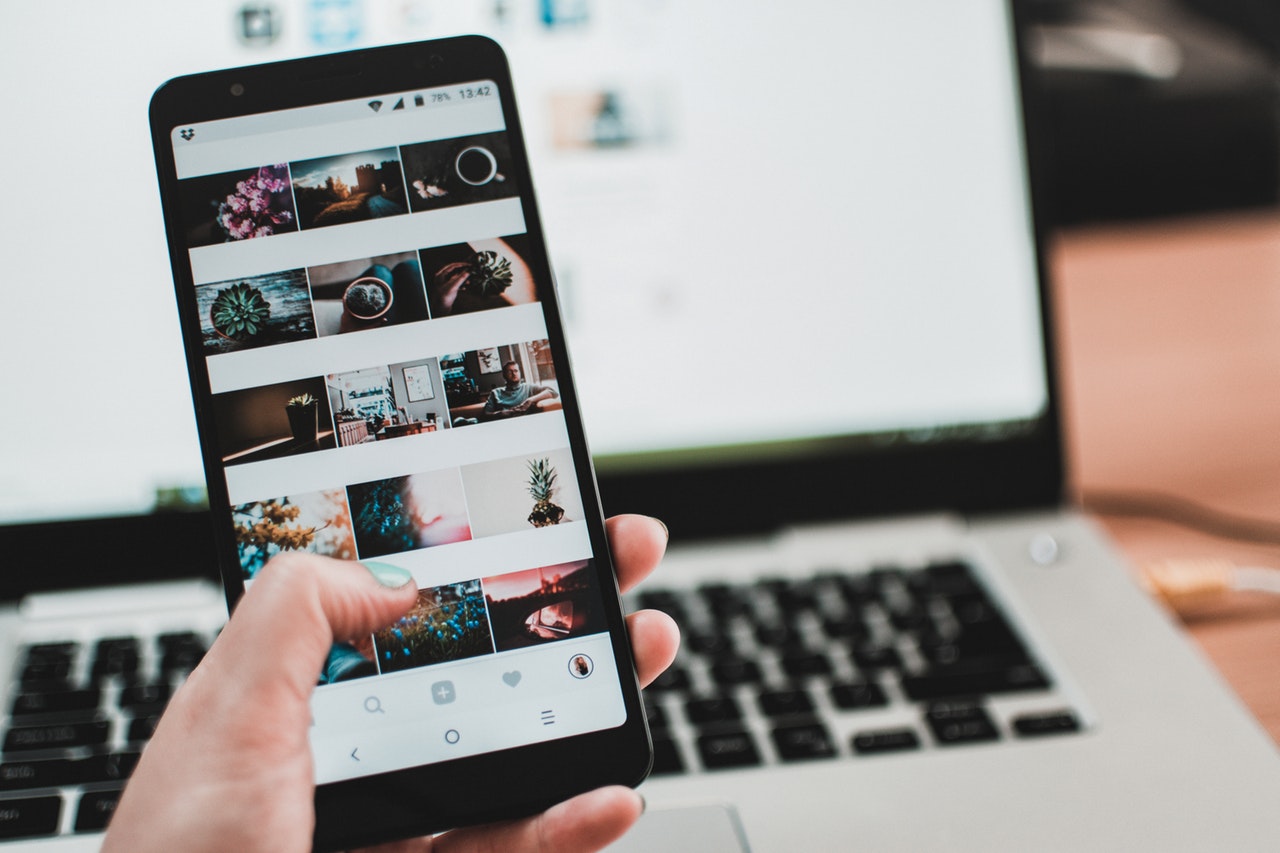
Am I Addicted to Social Media?
Social Media can be addicting, and can be a cause of anxiety, depression and loneliness. Learn if social media may be a problem for you, and how to fight back.

Social Media can be addicting, and can be a cause of anxiety, depression and loneliness. Learn if social media may be a problem for you, and how to fight back.

We see a lot of clients at Thrive Counseling that experience depression. Here are the surprising ways therapy can help with depression.

A new report says Denver has a drinking problem. But how do you know if you have a drinking problem?

What does it look like to come out on the other side of depression?

Clinical Depression is a really tough issue. It’s incredibly common, and most people will experience at least one season in their lives where they feel depressed. When we feel depressed, we don’t just feel sad. Depression is a whirlwind of self-criticism, a sense of hopelessness, a flooding of overwhelm quickly follow by a deep sense of exhaustion and “what’s the point?” So, what actually helps with depression. There’s an enormous thread on a Depression subreddit (a huge online forum) where people all over the globe chimed in on what helps them. Here’s a top replies: “Asking for help. My mom used to come over once a week to help me grocery shop and cook dinner. Best thing I ever did for my depression.” Asking for help is hard, I get it. It’s hard for me too. But asking for help not only gets up some help, it communicates outward that we’re just not feeling well. Feeling connected to others is important, and usually alleviates depression. Giving someone who count on a ‘job’ to do to help you (even small) can go a long way to feeling less alone. I remember when I was feeling really down after the birth of my first child. People would often say ‘do you need anything?’ Can I bring you diapers?’ I was honest and said “Actually, I’m feeling pretty overwhelmed right now. Can you text me to check in? I might not even respond, but please ask me how I’m doing and invite me to things, that would help me a lot.” I was humbled and empowered by the outpouring of support I received. I made a rule that I had to leave my house for one hour every day, no matter the weather. I could sit on a bench, whatever, just had to be out. It was and occasionally still is hard, but when I miss a day that next day is brutally hard to manage. Forcing myself out every day creates a habit which builds weight against my desire to just… not do things. Depression wants you to hide away, stay in your house or your room. The inertia is there, and the bed is so comfy. But the world keeps going on, and if you can join with it-even in a very small small-your depression can lift. This response hits on something that research supports: the more isolated you are, the more likely you are to become depressed. Humans are social creatures, and being alone too much isn’t good for your mental health. So if you’re feeling depressed, try to get out. Being in nature is enormously helpful for mental health, but even sitting in a coffee shop or going to a movie is helpful. Realize that I was depressed. For the longest time I didn’t feel like anything was wrong. It was as if a slow sort of… pessimism crept up on me. Looking back I can see that something was indeed wrong….The first step to fixing a problem is realizing you have one. I get it, depression is a big scary word. It has a lot of baggage, but there can also be power and momentum in naming a problem. If you don’t feel like yourself and are not acting like yourself, something is pointing you to your pain. It may be depression, it may not be. But naming it is powerful. If you’re not sure whether you have depression, you can talk to a doctor or counselor and get an expert opinion. Another commenter puts it this way: “Adding on to this, I made a huge shift in my relationship with my depression when I started thinking of all my negative and unwanted thoughts as “symptoms” of my disorder rather than rational observations. It really helped me keep from believing that internal dialogue. It also helped me out in a few other ways. It gave me an easy way to communicate my damaging thoughts: “I’m feeling very symptomatic today.” It also helped me connect the thoughts with other symptoms, such as a period of low energy preceding episodes of negative self-talk.” Therapy. Turned out, my suicidal thoughts were just a manifestation of my anxiety about the future. Learned how to deal with that using self talk. I’m doing a lot better now. Therapy (sometimes paired with medication if appropriate) is the best treatment for depression. Sorting out what’s depression, what’s anxiety, what’s trauma, and what is an overwhelmed nervous system can reduce symptoms drastically. It’s difficult to start therapy and open up about how you have been feeling. Almost everyone that I work with, at the end of the first session, says something like: I was pretty nervous to come in here, but now I’m glad that I did. I think the number one thing that therapy give people at the very beginning is hope. Secondly, the knowledge comes. Self-knowledge and having a deep understanding of what’s going on is so helpful. Then, the solutions and coping tools come in.

We’ve all been there. Stuck in gridlock traffic on I-25, trying to travel through downtown Denver, or just get to the airport on time (I’m looking at you, 225 and Pena Boulevard!). Traffic in Denver is pretty bad, as everyone has noticed (and vented about). Not just the highways, but the side-streets and quiet neighborhoods of a few years ago are clogged, and we’re all bearing the mental load of being stuck in traffic or crawling along at a snail’s pace. Road Rage in Denver Road Rage refers to the intense feeling of anger, irritation, hostility or all-out rage that we sometimes feel while driving. Being cut off in traffic, sitting in a standstill, or being late to something important can trigger a lot of big feelings. There have been a few high-profile incidents of intense Road Rage in Denver recently. Road Rage can be really harmful to ourselves and others. Being stuck in traffic presents an emotion management problem. In other words, to survive in Denver traffic these days, you need some skills and tools to keep from becoming overly angry, frustrated or stressed. The First Step is Acceptance When we think about emotion regulation, the first step is always one of acceptance. It’s really important to accept your situation for what it is, and validate for yourself that it’s frustrating and difficult. Acceptance in this sense doesn’t mean you ‘approve’ or what’s happening or that you have to feel good about it, you simply need to accept it as your reality. How do we do this? The best way is to talk to yourself (or think to yourself) about the situation without any judgement or wishful thinking that it was different (just the facts). Here’s some examples: I am stuck in traffic and I didn’t expect to be. I feel really frustrated and also worried that I will be late for work. My commute is always very slow, as it is today. I feel uncomfortable in my car and I have another 30 minutes of driving ahead of me. I feel angry that this is my everyday experience. The Next Step is Making a Plan After we have accepted and described our situation, we are ready to make a plan to cope with the difficult feelings we are experiencing. It’s important to frame this as trying to improve the moment, not rail against our emotions as they are, or try to change them because they are unacceptable. The goal is to make a plan to roll with your feelings, improve the moment somewhat, and wait out a challenging situation. Here’s some examples of things to do while stuck in traffic to alleviate frustration: Take 10 deep breaths, then take ten more Do some light stretches (if you can while driving safely) Call a friend or family member you’ve been meaning to connect with Listen to a podcast or audiobook Sing along to some music If you’re going to be stuck in the car anyway, might as well practice coping skills like the ones above. The Final Step is to Evaluate What Worked, and Try to Avoid Stressors in the Future Once you’re done with your marathon commute, take a moment to review for yourself what worked the best for riding out the frustration of the traffic jam. Were you able to lose yourself in your favorite music? Did you discover a podcast that held your attention? Did those should rolls feel great? How about breathing? Once you know what works best for you, you can plan for future traffic snarls (because let’s be real, I-25 isn’t going to be a breeze anytime soon). Have your coping skills handy. It can help to tape a notecard to your dashboard to remind yourself of these tools. Furthermore, research shows that when we anticipate feelings of anger or frustration, we experience these emotions differently than if they catch us by surprise. If can accurately anticipate our feelings, when they come roaring up at us we experience ourselves as more in control. We can greet them and say “Oh yeah, I knew you would come along, but I’ve got a plan in place.” So when you head out on your drive and you predict that there will be frustrating traffic, make sure you’re loaded up with podcasts (if that’s your thing), or you’ve got your stress ball squishy at the ready (if you like that), and just plan to be irritated. It’s how it is, and it’s not your job to change it, it’s your job to roll with it, accept your feelings and respond well. For your own mental health. For the other drivers. For all of us stuck in Denver traffic with you.

Is it normal to talk to yourself? That’s the million-dollar question that I often her from my therapy clients. My answer is “yes!” Here’s why it’s normal (and even very healthy) to talk to yourself. There’s a big difference between talking to yourself and responding to internal voices or hearing voices, which is concerning and I’ll lay out below the difference. We are always talking to ourselves, whether out loud or internally We are blessed with the gift of language, which is a powerful tool our brain uses to process stimuli from our environment, and make sense of ourselves and our world. We have a running dialogue in our heads all time, and we just call this ‘thoughts.’ A though is simply a bunch of words that run in the background pretty much all the time while we’re awake. We are always telling ourselves a story about what’s happening, what is means, and what we want to do in the future. All these internal thoughts form our internal dialogue, and it’s an incredibly important piece of mental health. If we can self-reflect (or have a therapist reflect back to you)on our internal dialogue, we can learn a lot about how we think about ourselves and how we perceive the world. For example, do you talk to yourself in a nice way or a harsh way? Does the internal dialogue sound calm or scared? Angry? Defensive? Shameful? Do you perceive the world as a safe place or a scary place? Does it seem like you talk to yourself like a friend would or (usually more likely) like an irritated, judgmental teacher? Examining all these thoughts are an important part of therapy, and changing that dialogue over time can lift depression, calm anxiety, fix relationships and lead to a life that’s just more peaceful and fulfilled. What about when I talk to myself out loud? This kind of self-talk is similar to the ongoing internal dialogue but it’s a bit more pronounced. Obviously, you’re talking out loud now and that requires even more processing than just thinking in words. When we articulate our thoughts and feelings into words, they become more clarified, more integrated, and seem more ‘real’ to us. It’s really healthy to talk in this way, whether to yourself or another person. It’s beneficial to force your brain to condense all the thoughts and feelings that are floating around internally into words and sentences. It’s basically explaining yourself to yourself. If you have small kids, or watch parents with small kids, you will see this happening between the parent and child. Before we can talk, we need help to organize our world, our thoughts, and our feelings. So we need a parent (or other adult) to explain ourselves to ourselves. And it’s soothing to kids. For example, here’s some things I used to say to my daughter when she was really little. Wow, you just bonked your head. I bet that really hurt. We can say ‘ow!’ when he bump our head. You wanted that toy but can’t reach it. That makes your feel mad so you cry. You love looking at that doggy! You’re smiling and it means you’re happy. As we get older, we can internalize this language and don’t need our parents to do it for us any more. The takeaway here is talking to yourself helps you organize and clarify your own experience, and that’s inherently calming for us. Why Should I Talk to Myself Out Loud? It may sound a little strange, but I encourage my clients to talk to themselves out loud; I even teach them how to do it in the most effective way. Talking to yourself out loud does a few things for you: -Organizes your thoughts -Clarifies your feelings -Helps your feel validated (validated by yourself) -Allows you to coach yourself towards a better response -Helps you plan your next step effectively -Helps you practice how to relate your experience to others I do tell my clients to talk to themselves in a safe space where they are alone and not worried about being overheard; this helps the dialogue just flow without too much self-editing. Great places are at home, in your car, on a walk (with some earbuds in), or while doing chores around the house. Here’s some examples of a great dialogue that I helped my client learn how to do in response to anxiety (I’m paraphrasing here): Okay, I’ve got my performance review coming up today. I feel really nervous it, which makes sense because a performance review if nerve-wracking. It’s out of my control, and that’s always hard for me. I feel a little shaky and I notice I’m playing out some worst-case scenarios in my head. Ugh, I hate this feeling! Okay, my therapist taught me how to do some deep breathing and some self-coaching so I’m going to try that now even though I feel a little silly talking to myself on my commute. Here goes: it’s normal to be nervous, it’s okay. I have prepared for this meeting. I’m going to give it my best shot and see what happens. I’m going to be open to feedback. I’ve come a long way this year. If the worst happens and I get fired, I can find another job. I’ve never been fired before. Okay, that feels a little better. I’m proud of myself for working on my anxiety. You can see that my client here is basically acting as their own coach or therapist. They are talking to themselves in a helpful way. anyone would feel better after hearing all of this. That’s how positive self-talk works, and the best way to learn how to do this and make it automatic for yourself is to practice out loud (even if it feels silly). When does talking to yourself become unhealthy? When people get worried about talking to yourself, they are usually thinking about psychosis or schizophrenia. These are mental health diagnoses that sometimes have

Ever feel like a fraud at work or with friends? Yeah, me too. That’s called Imposter Syndrome and it’s really common.

Sneaky signs of Anxiety We all know what anxiety feels like, or worse, what flat-out panic feels like. But there are other uncommon signs of anxiety that people often overlook. 1. Irritability When someone is highly anxious, it’s like they are walking around with a full cup (full of worries and anxious thoughts). Any little extra poured into their cup, like a small stressor, can cause that cup to overflow and you see a reaction that is usually being very short and irritable. It could be something that is an everyday stressor like a traffic jam or your favorite coffee place being out of espresso. It causes you to be irritable, and look like you are over-reacting, but really the root cause is ongoing chronic anxiety. 2. Hoarding Anxiety can show up in a scarcity mentality-the standpoint that there will never be “enough.” this can lead to hoarding behaviors like having a basement full of canned goods or a year’s worth of paper towels stashed under your bed. 3. Impulsive spending Having chronic anxiety wears away our brain’s ability to make calm and calculated decisions, and so what’s left is our impulses. Impulsive spending is an uncommon sign of anxiety because the anxious mind can’t take a step back and think for a while about a purchase. Instead we just impulse-buy things we probably don’t need and cause further stress. 4. Changing life directions quickly (career, new apartment, switching majors) This is also a sign of impulsivity that’s related to anxiety. If you find yourself making really big life decisions quickly without a lot of forethought that can be a sign of anxiety. Example are deciding to quit your job, switch entire careers, move to a new apartment, switch your college major, or end healthy relationships. 5. Crying (due to overwhelm) Most people associate crying with signs of depression, and that’s true for some people. But anxiety can also lead you to cry due to feeling overwhelmed, rather than sad. If you find yourself feeling so anxious you are crying, you should reach out for help. 6. Indecisiveness An anxious brain is an indecisive brain. Making decisions is taxing on our cognitive energy, and if you have lots of anxiety, your brain is already taxed due to racing thoughts and worries. Therefore, it’s more difficult to make decisions both large and small. 7. Racing Heart Anxiety doesn’t just happen in the brain, it happens in the body too. When you are anxious, your body is getting signals from your brain to be on high alert to danger. You heart may beat faster because your body is trying to get a lot of blood to your limbs, to be ready to fight a threat or run away. 8. Insomnia Anxiety can deeply disrupt sleep and our behaviors around sleep. Your worried thoughts can keep you from falling asleep, or keep you from falling back asleep. Worrying about what happened that day or what might happen the next can make for late nights, sleepy mornings, and too many night wakings. 9. Shakiness For people with very high anxiety, their nervous systems get stuck in emergency mode, and one of the signs of this is shakiness. People may notice shaky hands, or a general overall feeling of shakiness in their bodies. 10. Dizziness Along with shakiness, dizziness can be a sign of extreme or long-term untreated anxiety. The dizziness comes from an overwhelmed nervous system that can’t calm itself down. It’s a worrying symptom but usually harmless and clears up once anxiety gets under control with treatment. 11. Disorganization When in a state of anxiety, our brains struggle with long-term planning and organization. It’s hard for our brains to put tasks in order, or clump them into an order of operations. What results is general disorganization. If you’re anxious, it may show up in missed meetings, running late, a messy home, forgetting to pay bills, and the like. 12. Weight Loss Anxiety leads to a state of high alert in the body, which naturally suppresses appetite. With a low appetite, people usually lose weight and are undernourished. It’s a double-whammy because in order to calm down your whole system you need good, nutritious food and regular meals, so that your blood sugar doesn’t drop and increase your anxiety.

When you really want to make changes, meet your goals, improve your relationships or resolve nagging issues, research shows that the most important thing to make therapy or counseling effective is something call “goodness of fit.” That’s a Psychology term for how well you and your therapist ‘click’ together. You know what it feels like when you ‘click’ with someone. Like when you first met your best friend, or your future spouse. It’s this amazing moment of things “oh, here’s my person!” Another to put this is that if you feel that your therapist “gets” you and you feel safe opening up to them and comfortable being vulnerable (which is essential to make changes and meet goals in counseling). So how do you find this magical person? The good news is that there are a plethora of great therapists in Denver. The bad news is that there are a plethora of therapists in Denver, and that can be overwhelming. It can be really, really difficult to find a great fit, but here’s some tips to make the process easier: Narrow Down your Criteria It’s more than okay to have preferences (and ‘must-haves’) for a therapist you are considering working with. You may prefer someone older (or younger), or a man versus a woman. You may look for someone with a particular background (like someone that’s a parent, or is trained in a specific type of therapy). Make a small list of your preferences as a jumping-off point. Make it easy on yourself Counseling is hard enough; you’re sitting in a room with a stranger, baring your secrets and really getting into the nitty-gritty of your ‘stuff.’ So you want to make it easy on yourself in terms of logistics. Check to see if the therapist you’re eyeing has time slots that work for you in an ongoing way. Check their office location to make sure you can easily get there (and park! as we all know, parking can be a nightmare in Denver). Does the office look comfortable and relaxing? There’s lots of great office space available all over Denver, no need to sit in a dark, cramped office. Probably most importantly; can you afford it or does this therapist work with your insurance plan? If you’re going to be stressed about the investment of the counseling in the first place, it doesn’t set you up well to reach your goals. Therapist’s fees should be very clearly stated on their website (if they aren’t, then give it a pass), as well as clear language about whether they take insurance or not. If they don’t take your insurance, ask the therapist about how they can assist you in being reimbursed by your insurance company by submitting paperwork on your behalf (most insurance plans do cover counseling in one way or another, and your therapist should help you navigate this). We do this at Thrive Counseling as a service to our clients, and they say it’s been incredibly helpful in budgeting and making sure that the investment in therapy counts towards their deductible (if they have one). Ask The Right Questions During that first phone call or in-person meeting, the therapist will be asking you a lot of questions; about you, how you have been feeling, what your goals are, where you’ve been getting stuck or hurting, etc. But in a good consultation, you should also be invited and encouraged to ask questions. This is your opportunity to “interview” for the job of being your therapist (a very important role!). So grab that opportunity to ask the right questions to really see if this therapist is the one for you. Here’s some ideas to get your started: Do you help clients like me? How do you help them? What are some examples of tools, strategies or techniques you think would be helpful for me? How do you measure progress with your clients? Do you write a treatment plan and when do we go over it together? What’s your experience in helping people with my specific issue? Make The First Move Now it’s time to act. There’s no getting around it; you have to make that call, send that email, or click the Contact Us button on the website. To get what you’ve never gotten, you have to do what you’ve never done. Maybe for you that’s being vulnerable. Maybe it’s letting a professional evaluate your life-long anxiety, or voice those deep, dark and depressing thoughts. Maybe it’s entertaining the idea that you’re worth it; you’re worth putting in the effort to heal. Maybe it’s asking for help in leaving a bad relationship, or becoming a better you to finally find that right relationship. Whatever it is for you, we are cheering you on. Whether that’s with us at Thrive Counseling, or elsewhere. We want you to get where you’re going. We’d love to help. Contact Us for a free consultation.

When everything is awful and you are not okay, you probably feel like giving up. That’s normal, that’s human, and we’ve all been there. But before you give up (whatever that means for you) here are 16 questions to ask yourself: Are you hydrated? If not, have a glass of water. Have you eaten in the past three hours? If not, get some food — something with protein, not just simple carbs. Perhaps some nuts or hummus? Have you showered in the past day? If not, take a shower right now. If daytime: are you dressed? If not, put on clean clothes that aren’t pajamas. Give yourself permission to wear something special, whether it’s a funny t-shirt or a pretty dress. If nighttime: are you sleepy and fatigued but resisting going to sleep? Put on pajamas, make yourself cozy in bed with a teddy bear and the sound of falling rain, and close your eyes for fifteen minutes — no electronic screens allowed. If you’re still awake after that, you can get up again; no pressure. Have you stretched your legs in the past day? If not, do so right now. If you don’t have the spoons for a run or trip to the gym, just walk around the block, then keep walking as long as you please. If the weather’s crap, drive to a big box store (e.g. Target) and go on a brisk walk through the aisles you normally skip. Have you said something nice to someone in the past day? Do so, whether online or in person. Make it genuine; wait until you see something really wonderful about someone, and tell them about it. Have you moved your body to music in the past day? If not, do so — jog for the length of an EDM song at your favorite BPM, or just dance around the room for the length of an upbeat song. Have you cuddled a living being in the past two days? If not, do so. Don’t be afraid to ask for hugs from friends or friends’ pets. Most of them will enjoy the cuddles too; you’re not imposing on them. Do you feel ineffective? Pause right now and get something small completed, whether it’s responding to an e-mail, loading up the dishwasher, or packing your gym bag for your next trip. Good job! Do you feel unattractive? Take a goddamn selfie. Your friends will remind you how great you look, and you’ll fight society’s restrictions on what beauty can look like. Do you feel paralyzed by indecision? Give yourself ten minutes to sit back and figure out a game plan for the day. If a particular decision or problem is still being a roadblock, simply set it aside for now, and pick something else that seems doable. Right now, the important part is to break through that stasis, even if it means doing something trivial. Have you seen a therapist in the past few days? If not, hang on until your next therapy visit and talk through things then. Have you been over-exerting yourself lately — physically, emotionally, socially, or intellectually? That can take a toll that lingers for days. Give yourself a break in that area, whether it’s physical rest, taking time alone, or relaxing with some silly entertainment. Have you changed any of your medications in the past couple of weeks, including skipped doses or a change in generic prescription brand? That may be screwing with your head. Give things a few days, then talk to your doctor if it doesn’t settle down. Have you waited a week? Sometimes our perception of life is skewed, and we can’t even tell that we’re not thinking clearly, and there’s no obvious external cause. It happens. Keep yourself going for a full week, whatever it takes, and see if you still feel the same way then. You’ve made it this far, and you will make it through. You are stronger than you think. This post is licensed under a Creative Commons Attribution 4.0 International License: alteration and redistribution are welcome

We all want a healthy and balanced relationship with food and our diet. But what does that look like exactly? It’s hard to see what balance looks like among fad diets and the latest food trends. Here’s some markers of a healthy relationship with food. A healthy relationship with food should be balanced and flexible. We all aim for a healthy diet, and a healthy diet encompasses many different foods and every treats from time to time. Your body is resilient, and having a doughnut or some chips once in a while will not ruin a diet or harm your health over the long-term. Try to avoid thinking about foods as good or bad (or clean vs. dirty). Foods are foods. Nourish your body and treat it once in a while to an indulgence. Your thoughts about food should not take up too much ‘mind-space.’ Your thoughts should not center only on food or exercise. This could be a sign of obsessiveness, or a sign that food is being a placeholder for other, larger, anxieties. You should be able to plan your meal, and then move on to think about other things. You should not berate yourself for food choices. Talk to yourself like you would a friend or loved one. You wouldn’t call them names for what they ate over the lunch break, and neither should you. If you really feel like you need to improve your diet, talk to yourself with compassion and support, and get some great advice from a Dietician. If you find yourself with very negative self-talk, seek out a therapist to change these habits. Your chosen diet should not interfere with other valued activities, or get in the way of relationships. If you find yourself skipping social outings, or stressing over thanksgiving with your family, this is a sign of being too focused on food. Relationships and having fun are crucial to your mental health. They are nourishment for your mind (and your soul). Don’t let the aim of a perfect or ‘pure’ diet take away from your mental health. You should not pin your self-worth on your diet, or feel superior to others because your diet is more ‘pure’ or ‘clean.’ You are not your diet. If you find yourself thinking of yourself (and others) in terms of how good or bad their food choices are, take a step back and perhaps talk to a therapist about this. It’s important to cultivate your self-worth based on your character, relationships, valued work, and personal goals rather than how strictly you can stick to the diet of the moment. If you feel like you are out of balance with food, or want to talk with someone further about how you feel, you can always contact us for a free consultation.